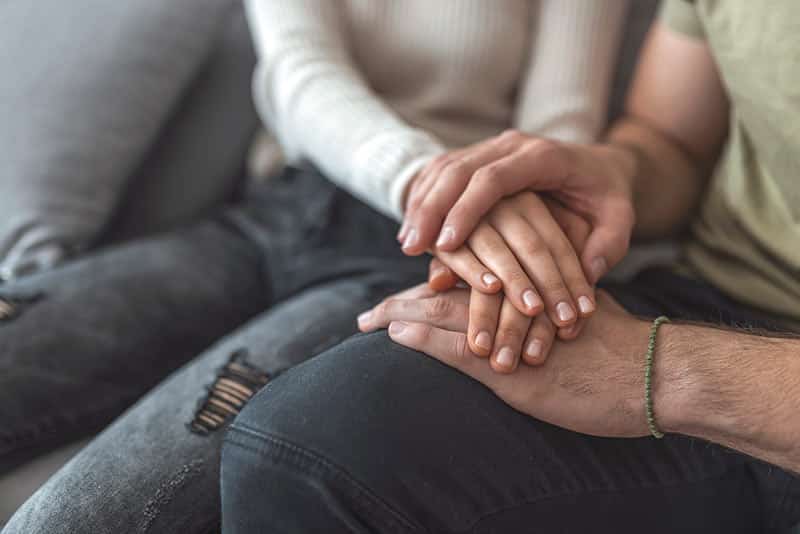What To Do If Your Loved One Has a Drug Problem

If your loved one is using drugs in a dysfunctional way then it is reasonable to feel concerned. You may also feel an obligation to help this person— but how do you begin? We understand that this can be an emotionally and physically exhausting predicament. Offering help— whether it’s to a family member, a friend, or your own child— is no easy task.
Listed below are our answers to commonly asked questions by people concerned about their loved one’s drug use. Also listed are some practical tips on how to think safely, productively, and proactively about this situation.
Q: Is my loved one addicted to drugs?
It’s possible that your loved one has an addiction, but that’s not necessarily the case.
Addiction is an experience people create from an activity or object (we’re referring to drugs in this case). People are addicted when they become absorbed in this experience because it provides them with essential emotional rewards, while at the same time it progressively limits and harms their lives. Drug use, by itself, does not cause addiction and the fact that your loved one takes drugs (whether legal or illicit) is not sufficient information, on its own, to determine whether this person uses drugs in an addictive way. So how can you know for sure whether your loved-one is addicted? Start with a simple checklist of questions to ask yourself and them for some perspective
- How is your loved one doing overall?
- Do they have a nice social circle?
- Do they get satisfaction from work?
- Are they interested in and engaged in the world around them — family, work, leisure …
- Are they reasonably physically active?
- Do they seem overly secretive?
- Are there any other issues — drinking? Porn? Eating issues?
- Have there been recent changes in behavior or mood?
- How’s their general health?
- Do they seem happy?
- Do they value good health (including diet, exercise, sleep, not smoking, etc.)?
- Are they motivated? Do they have a sense of purpose — in any arena of life?
- Do they feel good about themselves?
Q: Is drug addiction a disease?
Addiction is not a disease, it is a way in which a person relates to the world around them.
You may have been told that your loved one’s problem is a disease for which they must seek medical treatment or join a support group. You need to know this isn’t true. You should also know that, in fact, the “disease” label is self-stigmatizing and can be counter-productive.
The Life Process Program does not define addiction as a disease. It approaches as an experience we create to satisfy deeply-held, perceived needs. Here are LPP’s six criteria for the addictive experience:
- It is powerful and absorbs people’s feelings and thoughts
- It can be predictably and reliably produced by engaging in an activity or a substance
- It provides people with essential sensations and emotions (i.e., feeling valuable, in control, carefree or free from pain)
- It produces these feelings temporarily, only during the experience
- It ultimately degrades other involvements and satisfactions
- This degradation forces the person increasingly to return to the addictive experience for purpose and satisfaction
Q: Does my loved one need addiction treatment?
Not necessarily.
Conventional drug treatment programs or rehab facilities are not required steps in the process of overcoming an addiction. In fact, they’re an option at the extreme end of “treatment” and support. This is perhaps more obvious now that we’ve established that drugs do not cause addiction, and that addiction is not a disease. But you don’t need to believe either of those two assertions to make an informed decision about drug treatment.
It is possible that your loved one could benefit from some form of addiction treatment services. While people are becoming aware that there are risks associated with conventional (expensive inpatient treatment facilities) and now mainstream (medication assisted treatment, or MAT) drug addiction protocols, they may fear that deferring drug treatment is tantamount to leaving their loved-one helpless. This is not the case; there are many non-treatment options available, beyond AA/NA and 12-step, and it is entirely possible your loved one will be able to balance his/her life without services at all.
There is a spectrum between no treatment at all, on the one end, to intensive inpatient treatment on the other end, and MAT is somewhere in there, in the middle, now, as well. An LPP coach can help you decide, within this range, which options are best for you and your loved one.
Q. What can I do to help?
Communication, compassion, and collaboration.
The keys to recovering from and preventing addiction are to understand the purposes behind a person’s addiction and to find ways of fulfilling those needs without creating an addictive cycle.
This understanding is best achieved through open dialogue and a collaboration between you and your loved one. This concept itself is simple, but it’s not always easy in practice. You may both benefit greatly from reading through our LPP guide on how to fight and beat addiction.
An LPP coach can help you hone the communication skills you’ll need for productive collaboration between you and your loved one.
For a further discussion of the role you may play as a spouse, parent or concerned family member, see our guide “How Friends and Family Members Can Help Problem Drinkers.”
- Can I compromise with a marijuana smoker I love?
- My husband died over an overdose. Was there foul play?
- Should I live with a marijuana addict who is otherwise a good man?
- A Parent’s Guide To Understanding and Preventing Alcohol and Drug Abuse
- What is the best treatment option for my wife’s addiction to crack cocaine?
- My son is addicted to painkillers
- Crack Addiction – Please Help My Brother





